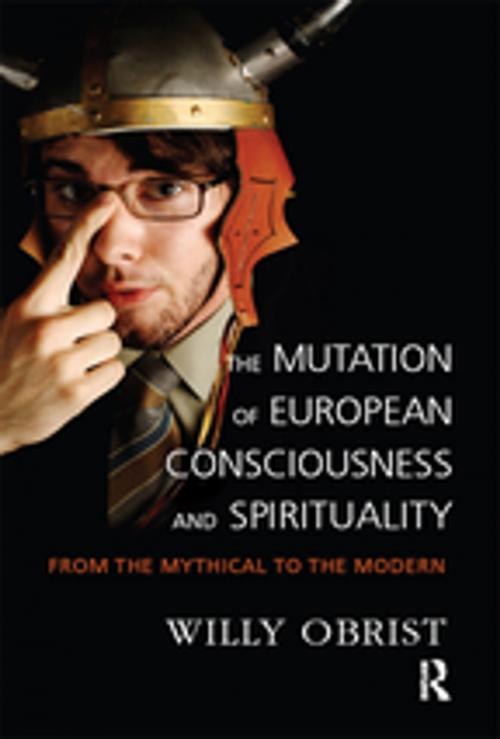The Mutation of European Consciousness and Spirituality
From the Mythical to the Modern
Nonfiction, Health & Well Being, Psychology, Mental Health| Author: | Willy Obrist | ISBN: | 9780429921520 |
| Publisher: | Taylor and Francis | Publication: | May 11, 2018 |
| Imprint: | Routledge | Language: | English |
| Author: | Willy Obrist |
| ISBN: | 9780429921520 |
| Publisher: | Taylor and Francis |
| Publication: | May 11, 2018 |
| Imprint: | Routledge |
| Language: | English |
From the early 1970s, the author worked on the neglected theory of C.G. Jung's depth psychology, incorporating it into modern knowledge about living organisms, and reflecting on the consequences of Jung's discovery for our worldview and religion. What is new about the present study is that the author approaches the religious metamorphosis from the perspective of the evolution of consciousness itself. The result of his exploration made the author realize that the development of European consciousness was not just an accidental historical process but a true evolutionary step: a "mega mutation" of consciousness. In this process, the basic parameter of the mythical understanding of our world was overcome and replaced by a completely new worldview which - after the discovery of the unconsious by Freud and Jung - was founded on scientific results empirically proved. This enables humanity to transcend the dilemma between knowledge and faith and to find a new understanding of both matter and mind that is adequate to today's knowledge of nature. From this point of view, a radically new access to spirituality and ethics becomes possible.
From the early 1970s, the author worked on the neglected theory of C.G. Jung's depth psychology, incorporating it into modern knowledge about living organisms, and reflecting on the consequences of Jung's discovery for our worldview and religion. What is new about the present study is that the author approaches the religious metamorphosis from the perspective of the evolution of consciousness itself. The result of his exploration made the author realize that the development of European consciousness was not just an accidental historical process but a true evolutionary step: a "mega mutation" of consciousness. In this process, the basic parameter of the mythical understanding of our world was overcome and replaced by a completely new worldview which - after the discovery of the unconsious by Freud and Jung - was founded on scientific results empirically proved. This enables humanity to transcend the dilemma between knowledge and faith and to find a new understanding of both matter and mind that is adequate to today's knowledge of nature. From this point of view, a radically new access to spirituality and ethics becomes possible.















